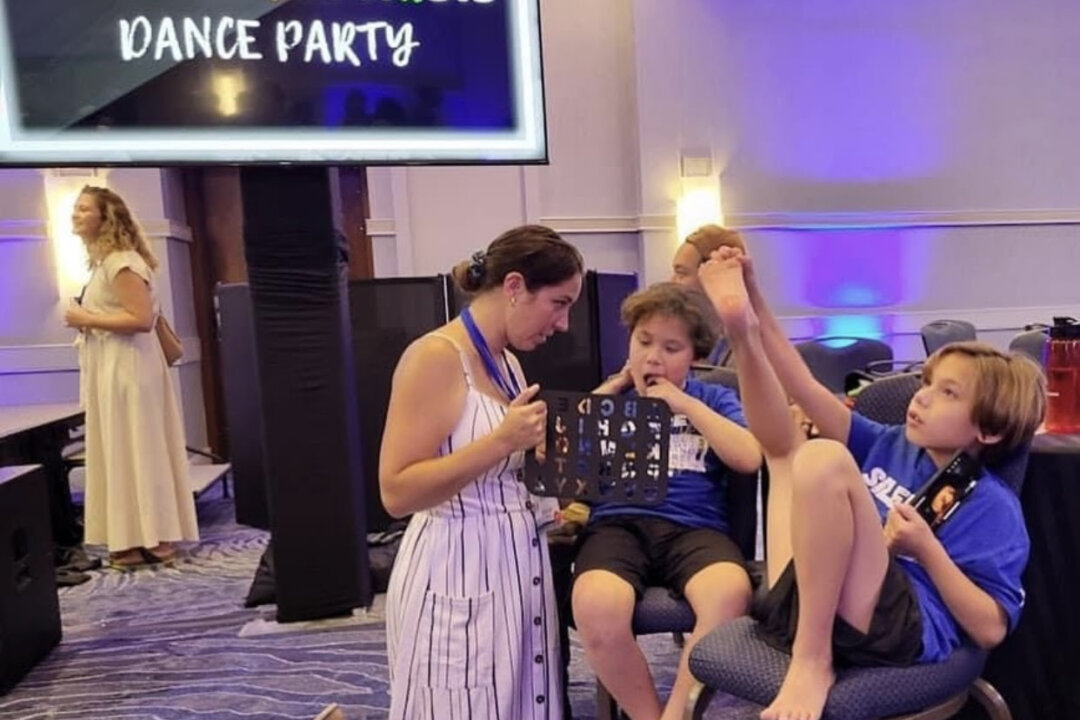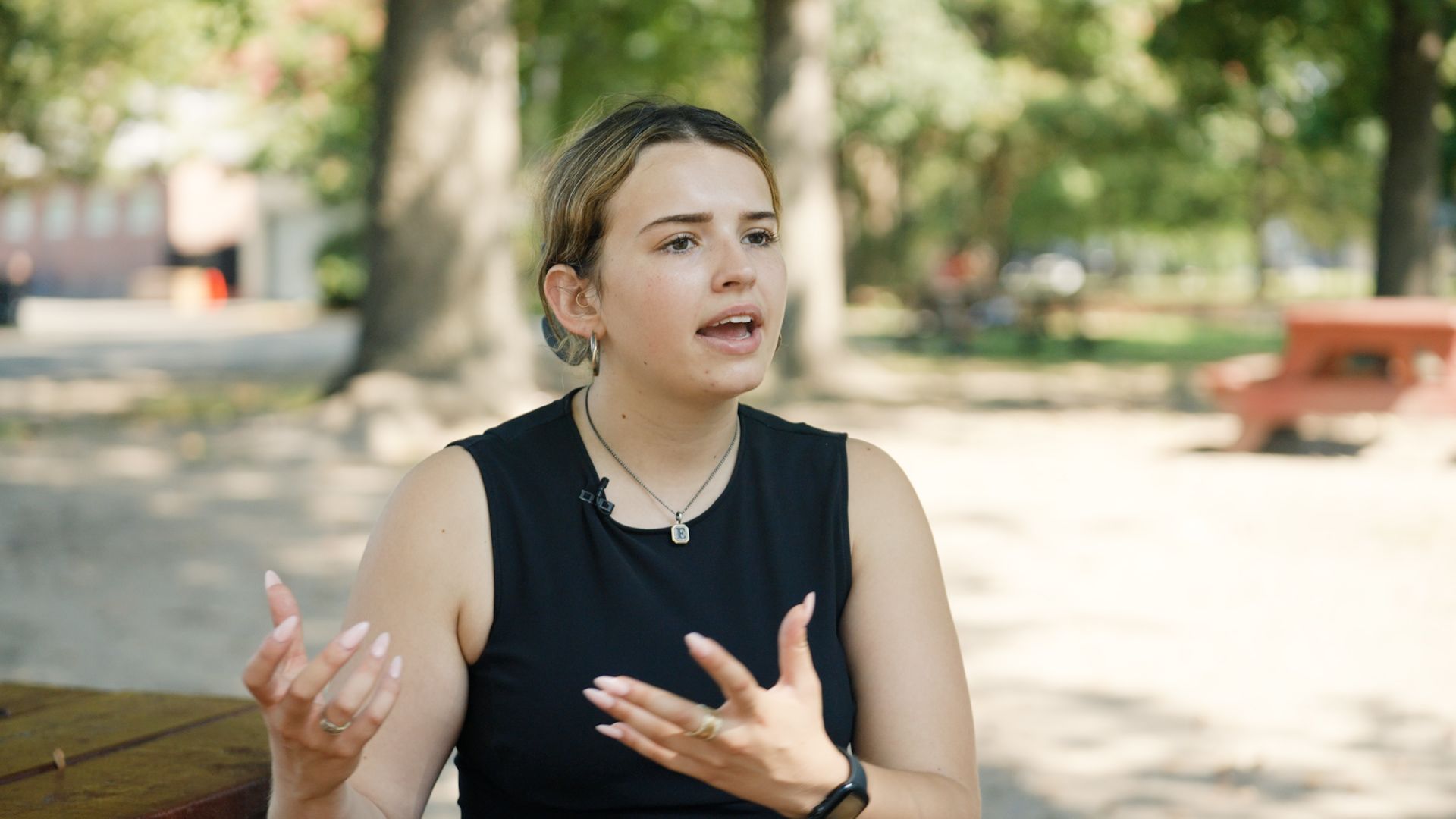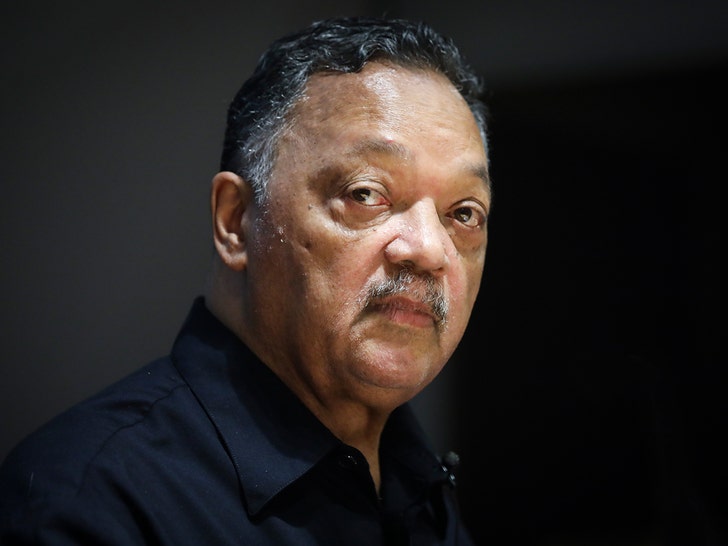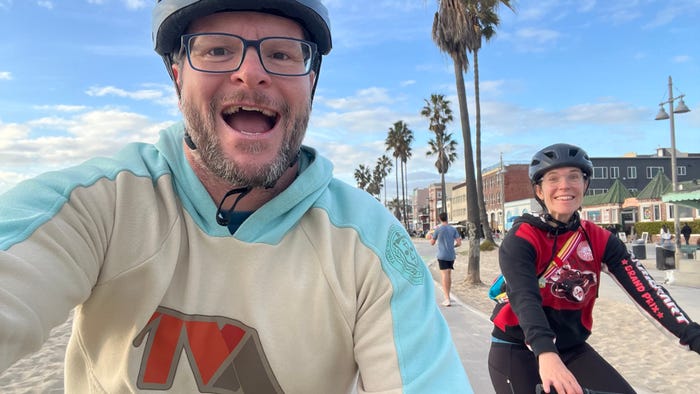The journey of communication for nonspeaking individuals with autism has gained significant attention, particularly through the inspiring story of Elizabeth Bonker, a graduate of Rollins College in Florida. During her graduation speech in 2022, Bonker captured the audience’s hearts with her powerful message, leaving a lasting impression that resonated widely on social media.
Bonker, who has lived with a form of autism that has prevented her from speaking since she was just 15 months old, delivered her address using a keyboard. Her poignant words were a tribute to the potential hidden within nonspeaking individuals, echoing the sentiment of Alan Turing, the British mathematician known for his pivotal role in breaking Nazi encryption codes during World War II. Bonker concluded her speech with Turing’s quote: “Sometimes, it is the people no one imagines anything of who do the things no one can imagine.” This statement elicited a standing ovation from her fellow graduates and faculty.
The impact of Bonker’s speech goes beyond the immediate celebration of her accomplishments. It has sparked conversations about the capabilities of nonspeaking individuals and the tools that can empower them. Many are now advocating for the use of keyboards and letterboards as effective means of communication for those with autism, highlighting how these tools can provide a voice to those who have been silenced.
Bonker’s transition from a young girl unable to communicate verbally to an accomplished author and public speaker illustrates the transformative power of technology in the realm of autism. Her success story serves as a reminder that with the right support and resources, individuals with disabilities can express their thoughts and feelings, challenging societal perceptions.
As Bonker continues to engage audiences worldwide, she emphasizes the importance of understanding and acceptance. Her journey, amplified through social media, encourages others to recognize the diverse ways in which people can communicate and express their creativity.
In a society that often overlooks those with disabilities, Bonker’s achievements shine a light on the necessity for inclusion and the celebration of every individual’s unique abilities. Her story not only inspires those with similar challenges but also calls for greater awareness and advocacy for communication methods that can unlock the potential of nonspeaking autistic individuals.
The dialogue surrounding autism is evolving, and Elizabeth Bonker stands at the forefront, proving that determination and the right tools can lead to remarkable outcomes. As she continues to share her experiences, the hope is that more individuals will find their voices, fostering a deeper understanding of autism and its many manifestations.







